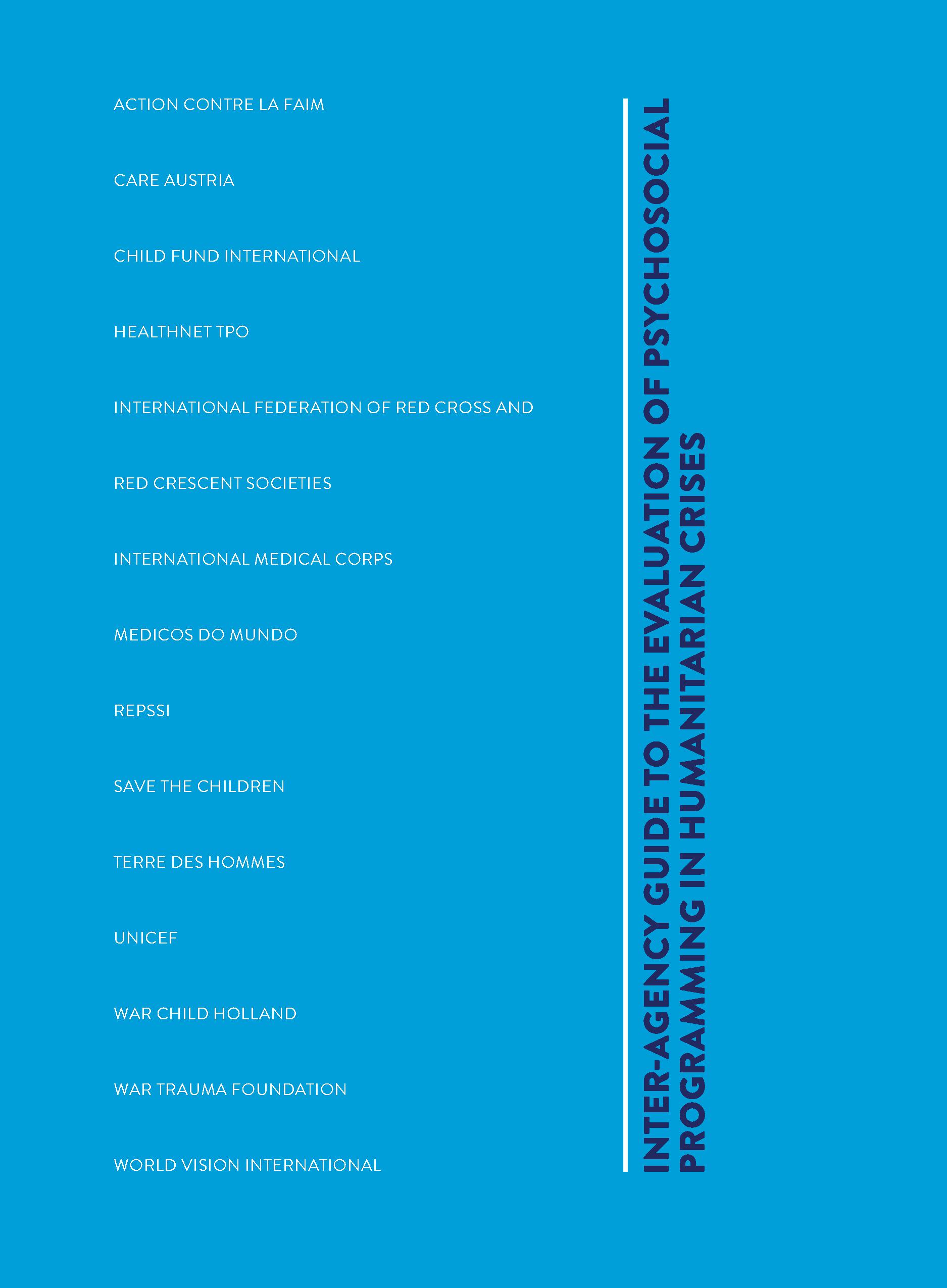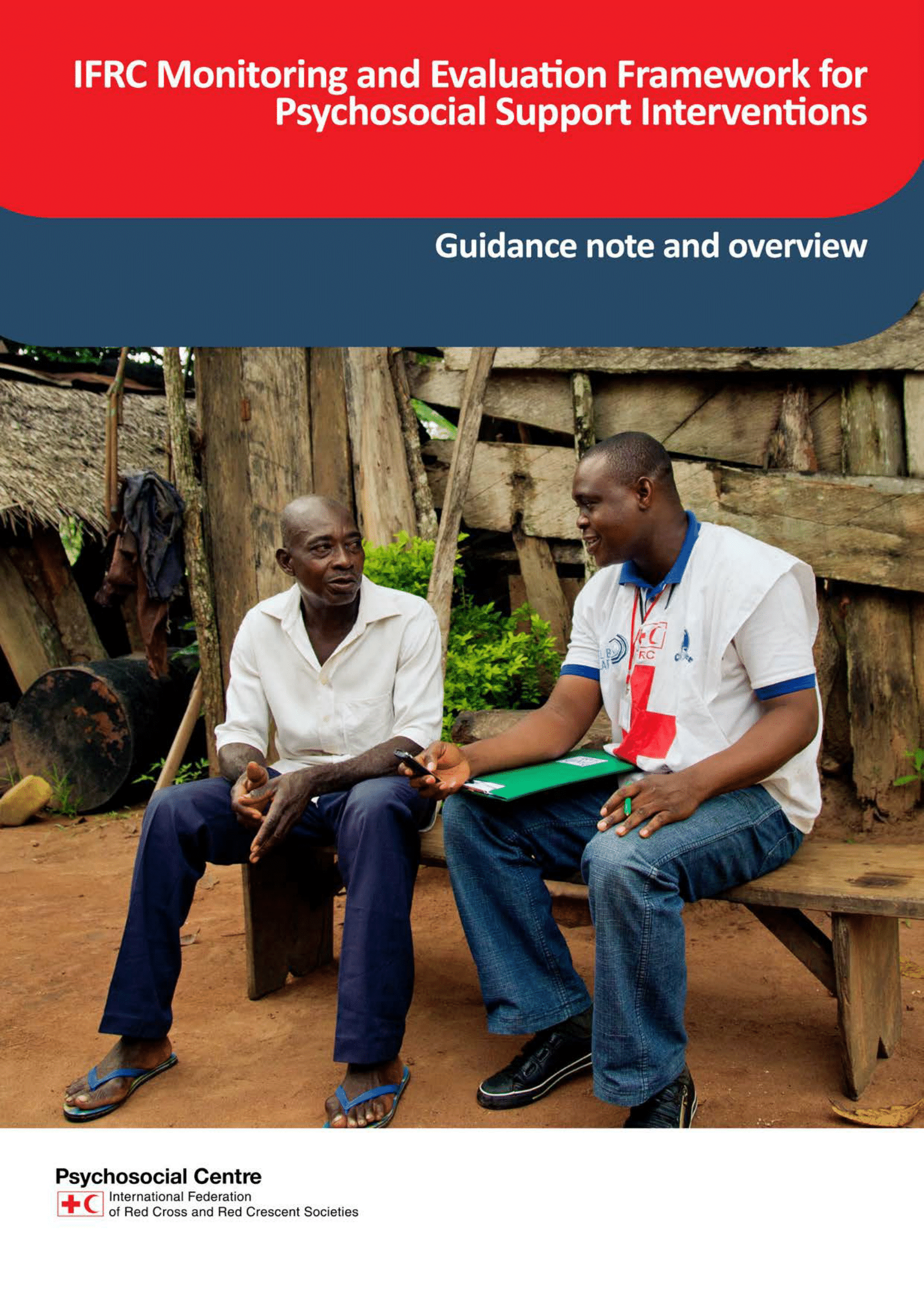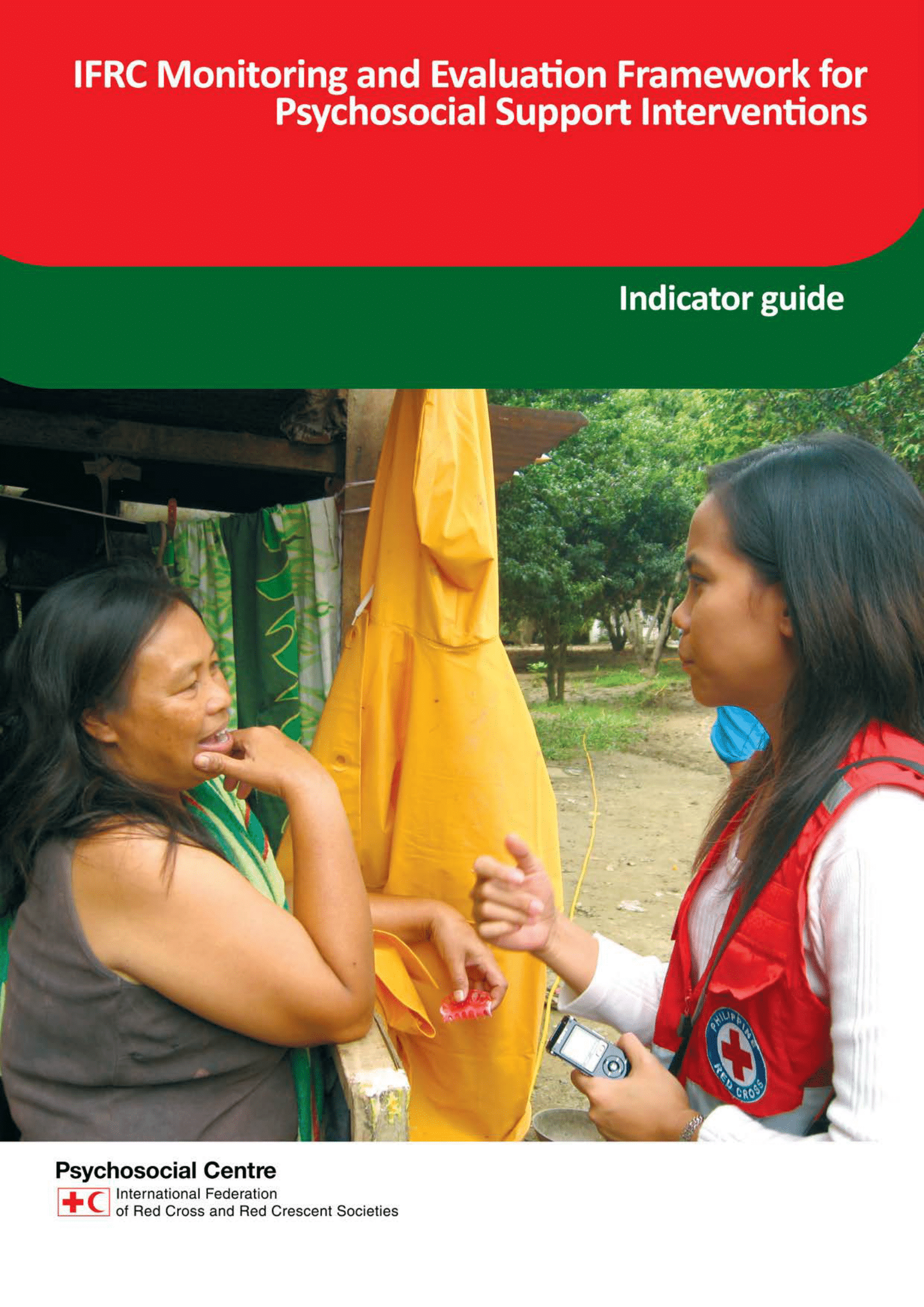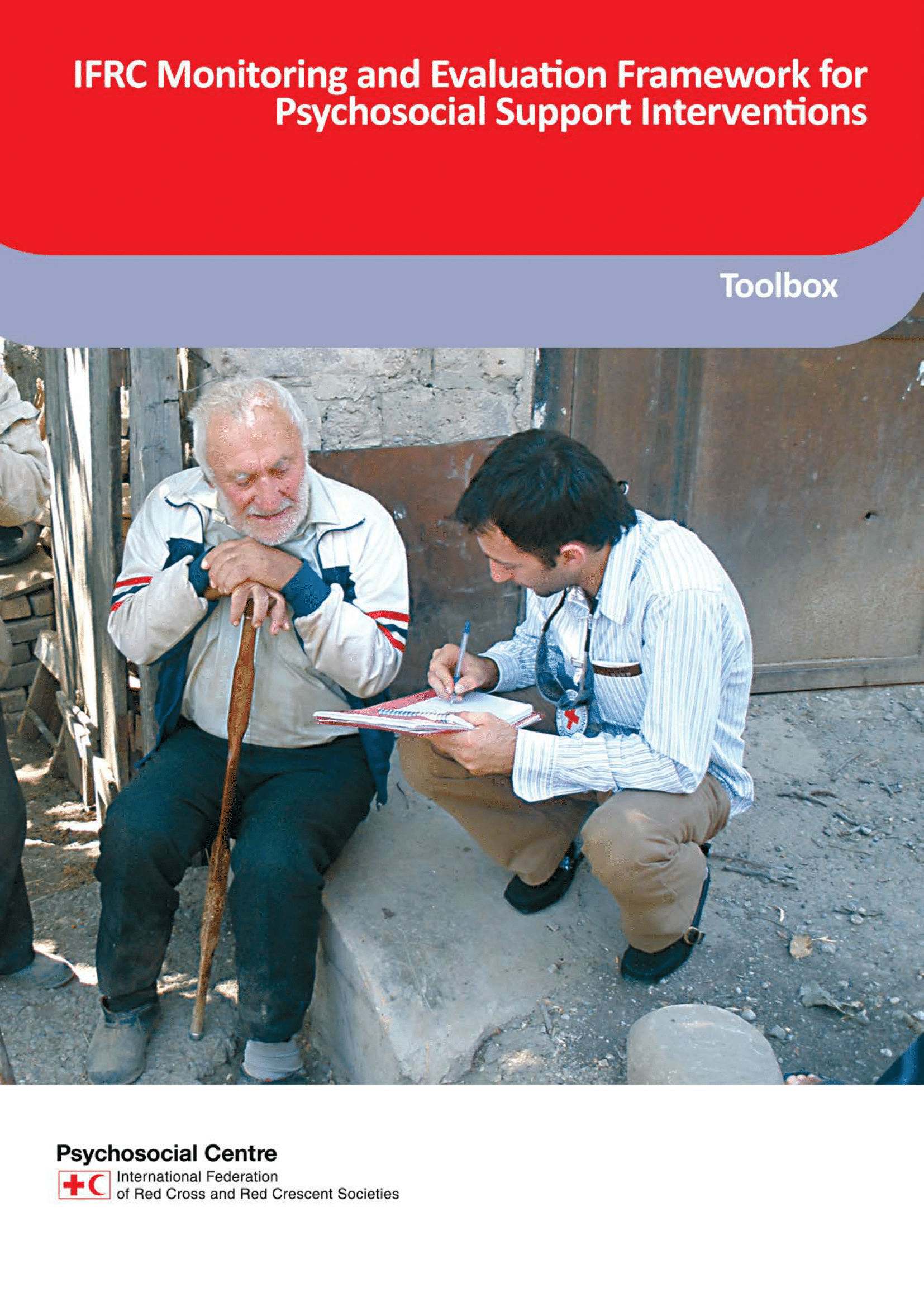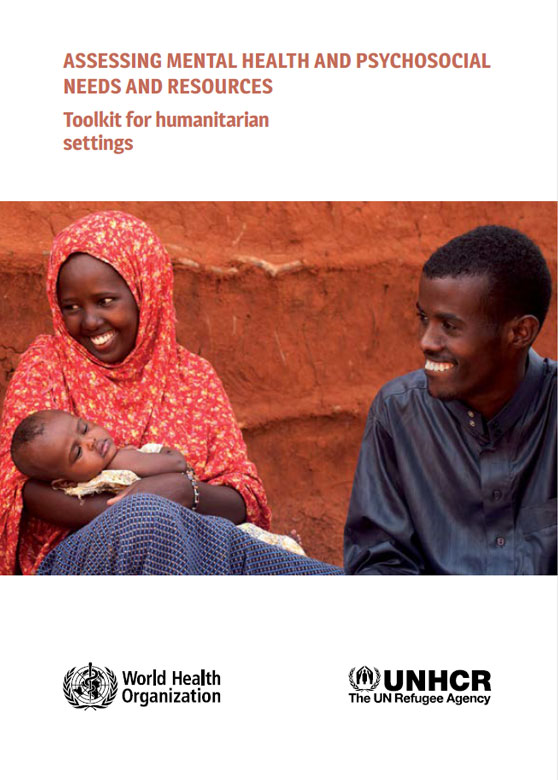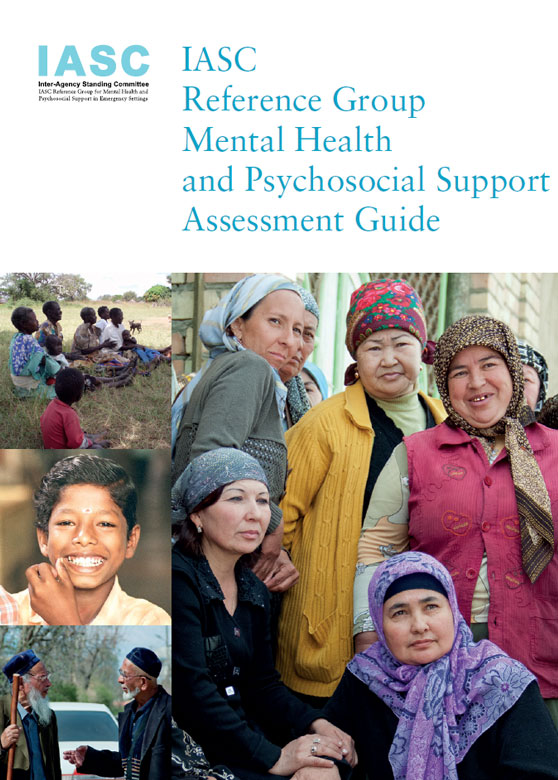Exposure to the disruption, loss, and violence associated with humanitarian crises places significant psychological and social strain on individuals, families and communities. The way in which people experience and respond to conflicts and disasters varies greatly, yet with the right support the majority will be able to overcome these difficult experiences.
This guide provides practical guidance for the evaluation of psychosocial programs in crisis settings. In running a psychosocial program, it is important to see if we are actually making a difference to the individuals, families and communities we are working with. Evaluation helps us to assess the activities we are involved with and to learn how we can improve our work.
The guide aims to provide concise, clear guidance in an accessible format, using real world examples throughout to illustrate how psychosocial programs can be evaluated in the field. The guide focuses on psychosocial programs, and not those that deal with mental disorders, as the tools and methodologies for assessing mental disorders may be very different from those measuring psychosocial distress and well-being. The emphasis is on psychosocial programming targeting the needs of children and their families but, with appropriate adaptation, the principles and approaches proposed should prove of relevance to those working with other populations.

